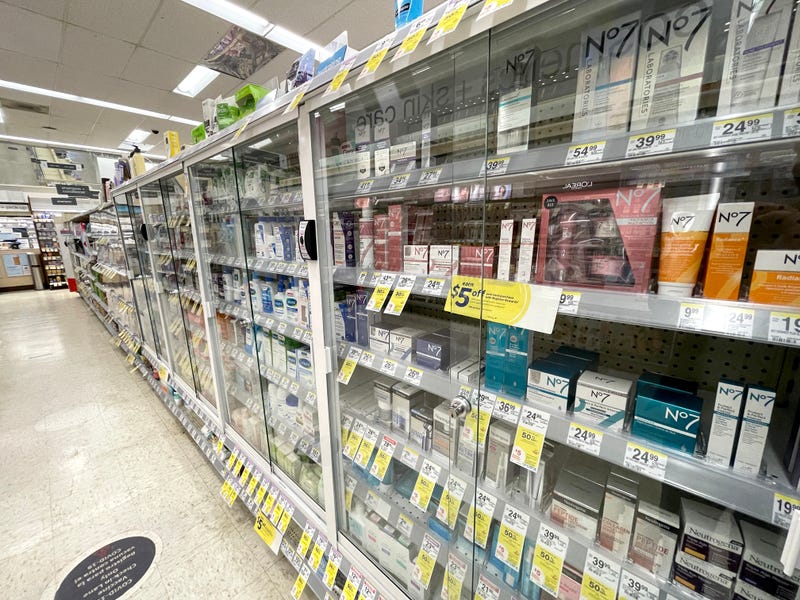
Retailers like Walgreens and CVS are losing less merchandise, but are also losing money by keeping basic toiletries like deodorant and toothpaste locked up in those plastic cabinets.
Bloomberg Retail Analyst Poonam Goyal says it's become more than a little irritating, and even sometimes embarrassing, for shoppers.
"It is a little uncomfortable to, you know, have to go into a store and have to ask someone to open up these cabinets," says Goyal. "It's not the best shopping experience."
Goyal says shoppers are adapting by going online which is more bad news for brick-and-mortar stores that are already struggling.
"If you need your medicine in the next 30 minutes in the next hour, you're going to walk into a CVS or somewhere else," Goyal explains. "But if you can wait a day, then you can go to Amazon and have it fulfilled. Or to any other online retailer."
The National Retail Federation says retail crime accounted for more than $112 billion in losses in 2022. Target, Walmart and Dollar General have joined the trend of locking things up as well.
Both Walgreens and Target stores in downtown Minneapolis now lock up the majority of their toiletries. One anonymous worker at Walgreens told WCCO Radio that any toiletry item they don't lock up is almost guaranteed to be stolen, and that most of it gets resold on the street. The same worker pointed out toothpaste that was not locked up, and the shelves were virtually empty due to theft.
Want to get caught up on what's happening in SoCal every weekday afternoon? Click to follow The L.A. Local wherever you get podcasts.
According to a story in Axios, secured cases can cause sales to drop 15% to 25%.
There could be a technology-based solution for stories however. CNN says stores are now testing a security tool that lets customers use their cell phone to unlock products on the shelf. It’s essentially self-service for unlocking display cases in exchange for a customer’s phone number.
Follow KNX News 97.1 FM
Twitter | Facebook | Instagram | TikTok
